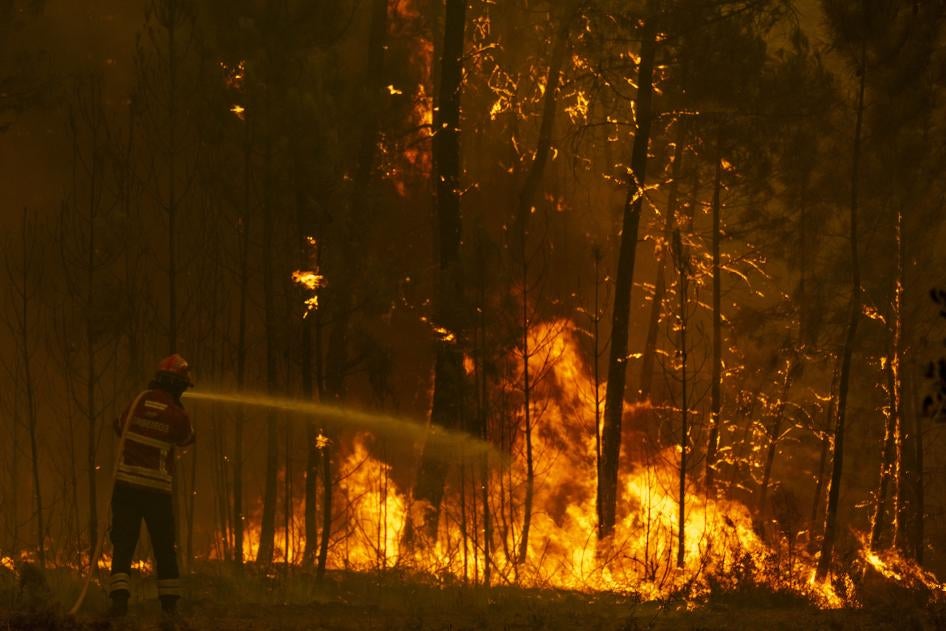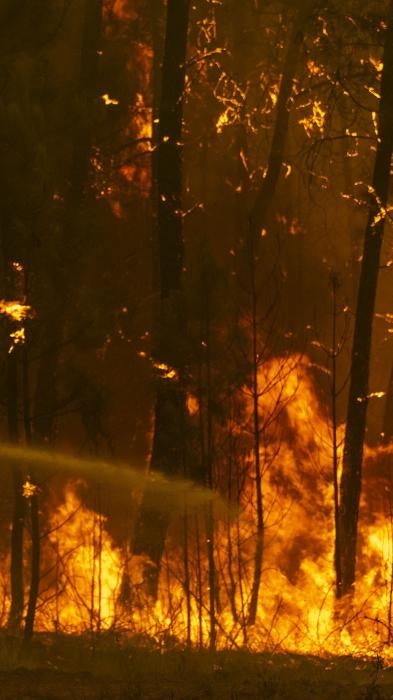Three years ago, four Portuguese children and two young adults filed a legal case against European governments for failing to take promised action to address the climate crisis. On Wednesday, the European Court of Human Rights in Strasbourg heard their case.
The young people decided to take action after an unusually hot summer that saw deadly wildfires grip Portugal. Cláudia Duarte Agostinho, one of the group, told Human Rights Watch at the time: “It was in 2017, when the deadliest forest fires in Portugal’s history broke out, many in the region where I live, that we became aware that something had to be done.”
Since then, the situation has become even more acute. 2022 was the hottest year on record in Portugal, with six recorded heat waves. Increased heat, air pollution, and other extreme events linked to climate change are already harming children across Europe.
The young people’s lawyers argue that the Portuguese government, alongside other Council of Europe states, have failed to reduce greenhouse gas emissions in line with commitments made under the Paris Agreement, a legally binding international treaty on climate change. This is contributing to accelerating a climate crisis that violates their human rights to life, health, and nondiscrimination.
A new report by the United Nations confirmed that governments, including in Europe, are not doing enough to reduce emissions. Meanwhile, the International Energy Agency (IEA) has found that in order to keep global temperature rise within 1.5 degrees C, the threshold suggested in the Paris Agreement, governments cannot expand fossil fuel operations. But despite the evidence presented by the IEA, some Council of Europe states are seeking to do just that.
While European governments would like to see the case dismissed, arguing it should be addressed by domestic courts. Council of Europe human rights Commissioner Dunja Mijatović, who intervened as a third party, underlined the importance of the case being heard by the European Court. “If all states are allowed to do only the bare minimum, the global climate change goals will not be met,” she said.
This case is not the first time the court has been told how the climate crisis threatens human rights, and the Court has yet to rule in two other climate cases heard earlier this year – one of them brought by older women from Switzerland who made similar arguments about their rights. Together, these cases present an opportunity for Europe’s top human rights court to clarify how governments’ human rights obligations can play an important role in their response to the climate crisis.











